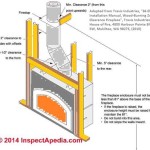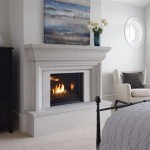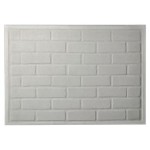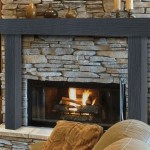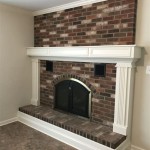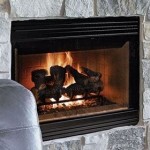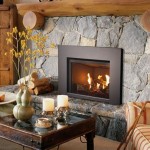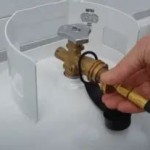The Value of a Fireplace in a Real Estate Appraisal
A fireplace is a cherished feature in many homes, often associated with warmth, comfort, and a sense of ambiance. Beyond its aesthetic appeal, a fireplace can also influence the perceived value of a property during a real estate appraisal. However, determining the precise monetary impact of a fireplace on an appraisal is a complex process, influenced by various factors including location, style, condition, and prevailing market trends.
Appraisals are conducted by licensed professionals who objectively assess the fair market value of a property. This assessment considers a wide range of characteristics, comparing the subject property to similar homes (comparables) that have recently sold in the same geographic area. The existence and characteristics of a fireplace are noted and analyzed within this broader context.
The tangible value attributed to a fireplace during an appraisal is not a fixed amount. Instead, it fluctuates based on a variety of factors that appraisers meticulously consider. Understanding these factors is crucial for both homeowners seeking to maximize their property's value and potential buyers assessing the worth of a home.
Location and Climate
The geographic location of a property significantly impacts the value a fireplace contributes. In colder climates, where winter months are long and harsh, a fireplace is often viewed as a more desirable and functional amenity. It can supplement central heating systems, reduce energy costs, and provide a reliable source of heat during power outages. Therefore, in regions with colder weather patterns, a fireplace tends to add more value to a property appraisal.
Conversely, in warmer climates where heating needs are minimal, the value of a fireplace may be less pronounced. While it might still contribute to the aesthetic appeal of a home, its functional benefit is reduced. In these regions, the fireplace may be considered more of a decorative feature, and its impact on the appraisal will be less significant.
Even within the same geographic region, microclimates and specific neighborhood characteristics can influence the perceived value of a fireplace. For example, homes located in areas prone to frequent power outages may see a greater value assigned to a functional fireplace, regardless of the overall climate.
Type, Style, and Condition of the Fireplace
The type, style, and condition of a fireplace are critical factors in determining its impact on an appraisal. The most common types include traditional wood-burning fireplaces, gas fireplaces, and electric fireplaces. Each type has its own advantages and disadvantages, which influence its perceived value.
Traditional wood-burning fireplaces are often viewed as adding a classic and rustic charm to a home. However, they also require more maintenance, including chimney cleaning and wood storage, and may be subject to stricter regulations regarding emissions. Gas fireplaces offer greater convenience and efficiency, as they can be easily turned on and off and require less maintenance. Electric fireplaces are the most convenient option, as they do not require a chimney or venting and can be easily installed in various locations. However, they are often perceived as less authentic and may not offer the same level of ambiance as wood-burning or gas fireplaces.
The style of the fireplace also plays a role in its value. A well-designed and aesthetically pleasing fireplace that complements the overall style of the home will likely be more valuable than a outdated or poorly maintained fireplace. Features such as custom mantels, decorative surrounds, and integrated bookshelves can enhance the appeal and value of a fireplace.
The condition of the fireplace is paramount. A properly maintained fireplace that is in good working order will add more value than a damaged or neglected fireplace. Appraisers will look for signs of cracking, crumbling, or other structural issues that could affect the functionality and safety of the fireplace. A fireplace that requires significant repairs or is not in compliance with local building codes may actually detract from the overall value of the property.
Market Demand and Buyer Preferences
Market demand and buyer preferences are perhaps the most dynamic factors influencing the value of a fireplace during an appraisal. Real estate markets are constantly evolving, and what is considered desirable or valuable today may not be the same tomorrow. Appraisers must stay abreast of current market trends and buyer preferences to accurately assess the impact of a fireplace on a property's value.
In some markets, fireplaces are highly sought after by buyers, who view them as a desirable amenity and are willing to pay a premium for homes that have them. This demand can be driven by factors such as lifestyle preferences, aesthetic trends, and the perceived warmth and ambiance that a fireplace provides. In these markets, a fireplace can significantly increase the appraisal value of a property.
However, in other markets, fireplaces may be less valued or even considered a liability. This can be due to factors such as changing lifestyles, concerns about air quality, or the availability of alternative heating options. In these markets, a fireplace may have little or no impact on the appraisal value, or it may even detract from the value if it is outdated, inefficient, or in poor condition.
Appraisers rely on sales data from comparable properties to gauge the market demand for fireplaces in a specific area. By comparing the sale prices of homes with and without fireplaces, appraisers can determine the average premium that buyers are willing to pay for this feature. This information is then used to adjust the appraisal value of the subject property accordingly.
Beyond comparable sales data, appraisers also consider other market indicators, such as surveys of buyer preferences, real estate agent feedback, and local market reports. These sources provide valuable insights into the current demand for fireplaces and help appraisers make informed judgments about their impact on property values.
The presence of a fireplace can also influence the perceived desirability of a home, leading to faster sales and potentially higher offers. Homes with fireplaces often stand out in the market and appeal to a wider range of buyers, especially those seeking a cozy and inviting living space. This increased demand can translate into a higher appraisal value.
Ultimately, the value of a fireplace in an appraisal is a function of its contribution to the overall appeal and marketability of a property. A well-maintained, aesthetically pleasing fireplace that meets the heating needs of the local climate and aligns with current buyer preferences will generally add value to a home. Conversely, a poorly maintained, outdated fireplace that is not in demand may have little or no impact on the appraisal value.
It is important to note that while a fireplace can enhance the value of a property, it is just one of many factors that appraisers consider during their assessment. Other factors, such as the size, location, condition, and overall features of the home, are equally important in determining its fair market value.
Homeowners considering installing a fireplace or renovating an existing one should carefully weigh the costs and benefits, taking into account the factors discussed above. Consulting with a qualified real estate professional or appraiser can provide valuable insights into the current market demand for fireplaces in a specific area and help homeowners make informed decisions that can maximize their property's value.

Obsolete But Cozy Does Adding A Fireplace Increase Home Value

Obsolete But Cozy Does Adding A Fireplace Increase Home Value

Does Adding A Fireplace Increase Home Value That

Obsolete But Cozy Does Adding A Fireplace Increase Home Value

Does Adding A Fireplace Increase Home Value That

Why Adding A Fireplace Can Increase Your Home Value Redfin

How To Read An Appraisal Report Written By Appraiser Realvals

Valuing A Fireplace

What Type Of Fireplace Adds The Most Value Dreifuss Fireplaces

Is Gas Or Wood Fireplace Better For Re Dreifuss Fireplaces
Related Posts

